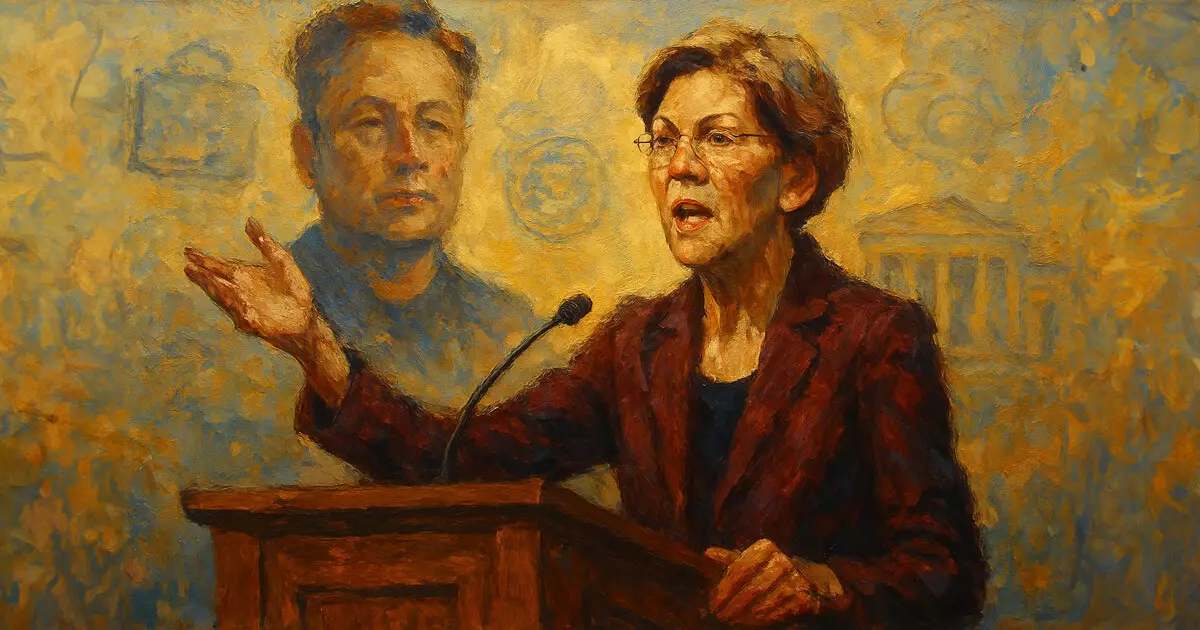The impending introduction of the Special Government Employee Ethics Enforcement and Reform (SEER) Act by Senator Elizabeth Warren is a bold attempt to recalibrate the ethical landscape of government advisory roles. In a political climate where trust in institutions is waning, the bill seeks to address the glaring transparency deficits surrounding Special Government Employees (SGEs). While the idea behind allowing high-profile figures like Elon Musk and crypto advisor David Sacks to step into advisory roles is to harness private sector expertise, the current model is fraught with ethical ambiguities. Under the proposed SEER Act, SGEs would be subjected to stricter guidelines aimed at preventing conflicts of interest. This initiative sends a strong message that ethical governance cannot be an afterthought in the face of corporate influence.
The Power of Disclosure
One of the most vital aspects of the SEER Act is the emphasis on disclosure. Currently, SGEs are only required to disclose financial interests if their earnings cross a specific threshold. This loophole allows influential individuals to operate in a fog of partiality, obscuring their ties to private enterprises while holding sway over public policy. Musk, for instance, has reaped the benefits of substantial government contracts yet navigates these waters with minimal transparency. The requirement for comprehensive financial disclosures will not only empower voters but also serve as a formidable deterrent against potential malpractices. By enforcing rules that would enforce disclosure from day one, the SEER Act elevates accountability to new heights.
Architects of Change? Or Beneficiaries of Status Quo?
Despite bipartisan support from advocacy groups like Public Citizen and the Campaign Legal Center, some skeptics argue that the SEER Act merely puts a Band-Aid on a much larger systemic issue. Are lawmakers genuinely committed to transformative change, or are they crafting legislation that allows them to appear proactive while still favoring business interests? Critics often dismiss such reform efforts as political theater, with less emphasis on genuine ethical oversight. However, one cannot overlook the potential for social pressure to catalyze change. If this legislation is passed, it could ignite a broader dialogue on the ethical responsibilities of individuals in advisory positions, fundamentally altering the dynamics between corporate giants and government.
Restricting Corporate Influence
The SEER Act’s restrictions on SGEs leading companies that engage with federal contracts tackle a significant source of conflict of interest head-on. By prohibiting these individuals from interacting with agencies that oversee their companies, the bill sets clear boundaries designed to safeguard public trust. In an age where corporate lobbying has become synonymous with governance, introducing such restrictions could be the breakthrough we need to rebuild trust in public institutions. This bill acknowledges that individuals wielding both corporate and governmental power must be scrutinized, ensuring that their dual roles do not compromise the integrity of our political processes.
Public Database: A Gateway to Oversight
A particularly groundbreaking provision in the SEER Act is the establishment of a public database maintained by the Office of Personnel Management. This would ensure transparency about the activities and days served by SGEs—critical information that should not be hidden from public view. The idea of making such data accessible is a giant leap toward demystifying governance. Voters have the right to know who is shaping policy decisions, and the database would empower citizens to hold officials accountable for their actions.
Ultimately, the SEER Act encapsulates a critical inflection point for American governance. It’s not just a legislative response; it’s a clarion call for ethical vigilance and accountability in a world often dominated by corporate interests.















